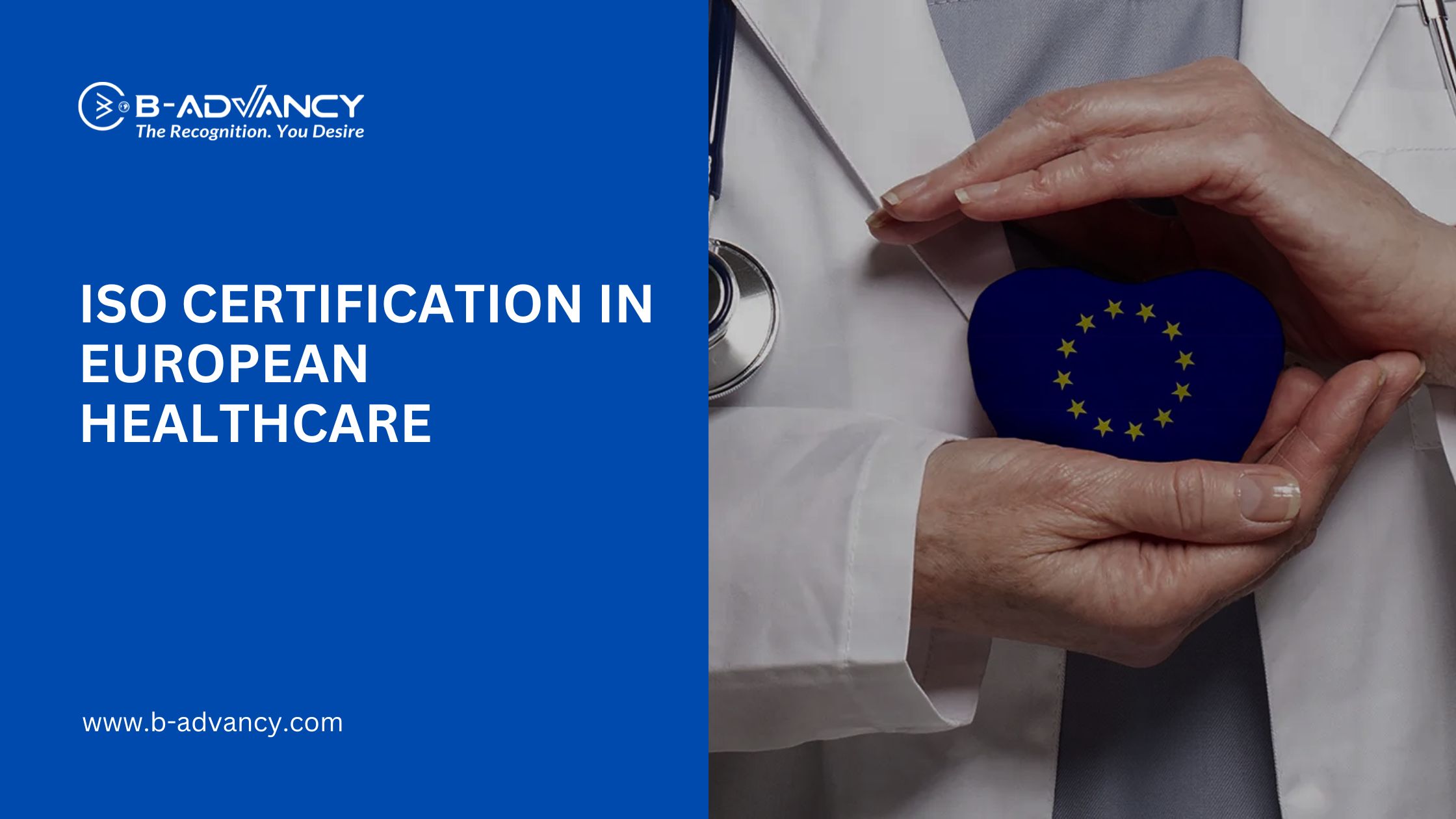
In the complex, ever-evolving landscape of healthcare, patient safety is a paramount concern. Across Europe, ISO certifications are increasingly seen as a critical component in enhancing patient safety, improving healthcare services, and promoting quality management in medical facilities. The adoption of various ISO standards within healthcare institutions enables organizations to create a robust framework that minimizes risks, ensures compliance with international standards, and ultimately fosters trust among patients and stakeholders. Let’s explore how ISO certifications are enhancing patient safety in the European healthcare sector.
ISO standards provide structured guidelines for quality management, risk assessment, and operational safety. In healthcare, these standards emphasize continuous improvement and help healthcare facilities meet regulatory and quality benchmarks. The relevance of ISO certifications in European healthcare goes beyond quality assurance to include critical aspects such as patient safety, data security, and streamlined processes, all of which contribute to higher standards of care.
Several ISO standards are particularly beneficial to healthcare organizations, focusing on areas ranging from quality management to information security:
ISO 9001 – Quality Management Systems (QMS): ISO 9001 establishes a quality management framework, enabling healthcare institutions to improve processes, reduce errors, and ensure a patient-centric approach. This standard helps healthcare providers implement effective quality controls and continuously monitor service delivery for improvements.
ISO 13485 – Medical Devices Quality Management Systems: Particularly significant for hospitals, clinics, and manufacturers of medical devices, ISO 13485 ensures the consistent quality and safety of medical devices. Compliance with this standard helps reduce risks associated with medical devices, thereby improving patient safety.
ISO/IEC 27001 – Information Security Management: As healthcare organizations handle vast amounts of sensitive patient data, data protection has become a top priority. ISO 27001 ensures the protection of patient information against cyber threats, securing both personal and health-related data.
ISO 45001 – Occupational Health and Safety: Focused on creating safe and healthy workplaces, ISO 45001 helps healthcare institutions protect their employees from work-related risks. A safe work environment is also crucial for patient safety, as it minimizes the risk of infections and accidents.
ISO 22301 – Business Continuity Management Systems: In cases of emergencies, healthcare facilities must continue to function effectively. ISO 22301 helps these institutions maintain service delivery during disruptive events, ensuring patients receive timely and continuous care.
ISO certifications enable healthcare institutions to implement a safety-focused culture that prioritizes quality, risk management, and employee well-being. Here’s how they contribute to patient safety:
Standardized Processes: ISO standards emphasize consistency in operations, which minimizes errors and improves the quality of care. For example, ISO 9001’s quality management processes ensure that healthcare providers follow consistent procedures, leading to predictable and reliable outcomes.
Enhanced Infection Control Measures: Adopting ISO standards like ISO 45001 and ISO 13485 helps in implementing stringent infection control protocols, which are critical in healthcare settings. These standards ensure adherence to high levels of cleanliness and hygiene, reducing the risk of healthcare-associated infections.
Improved Equipment Safety: ISO 13485 certification mandates strict control over the development and maintenance of medical devices. By complying with these standards, healthcare providers reduce the chances of device malfunctions and ensure patients receive safe and reliable treatments.
Data Security and Confidentiality: With healthcare digitization on the rise, protecting patient data is crucial. ISO 27001 offers healthcare institutions a framework to safeguard patient information, ensuring compliance with the General Data Protection Regulation (GDPR) and fostering trust among patients.
Risk Management and Emergency Preparedness: ISO standards like ISO 22301 for business continuity help healthcare institutions manage risks effectively. They guide organizations in preparing for emergencies, minimizing disruptions, and ensuring the continued safety of patients during crises.
While ISO certifications offer numerous benefits, healthcare organizations in Europe often face challenges in implementing these standards. The initial costs associated with obtaining ISO certifications, the need for training staff, and the ongoing commitment to maintain compliance can be demanding. Furthermore, integrating multiple ISO standards across departments requires a well-coordinated approach and a clear understanding of each standard’s requirements. However, with the long-term benefits to patient safety and institutional reputation, many healthcare providers find the investment worthwhile.
The future of ISO certification in the European healthcare sector looks promising as healthcare facilities increasingly prioritize patient safety and quality of care. As ISO standards evolve to meet emerging healthcare challenges, new certifications focusing on telemedicine, artificial intelligence, and patient-centered technologies are expected to gain prominence. This proactive approach aligns with Europe’s healthcare objectives to provide safe, efficient, and innovative healthcare services.
ISO certifications have proven to be a valuable tool in advancing patient safety and improving healthcare quality across Europe. By adhering to these internationally recognized standards, healthcare organizations build a structured foundation for risk management, consistent service delivery, and reliable patient care. As the healthcare industry in Europe continues to adapt to new challenges, ISO certifications will play a crucial role in ensuring patient safety, enhancing operational efficiency, and reinforcing public trust in healthcare services.